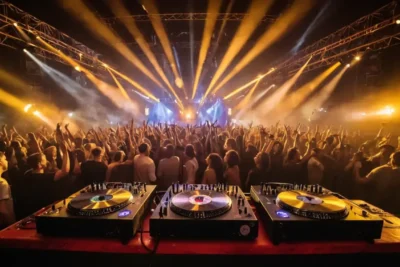
Becoming a Psychiatrist: Education, Licensure & Certification Requirements

Becoming a psychiatrist is a highly rewarding and challenging career path that requires dedication, hard work, and a strong passion for helping individuals overcome mental health issues. As one of the most respected medical professionals in the field, psychiatrists play a vital role in diagnosing and treating patients with various mental illnesses, from anxiety disorders to severe psychiatric conditions such as schizophrenia.
The journey to becoming a psychiatrist is long and arduous, involving numerous educational requirements, licensure processes, and certification procedures. However, for those who are genuinely interested in this field, the rewards far outweigh the challenges. In this article, we will delve into the various aspects of becoming a psychiatrist, including education requirements, licensure and certification processes, career opportunities, salary expectations, job outlook, work environment, patient care, continuing education, professional organizations, personal qualities, clinical experience, research opportunities, training programs, specializations, practice settings, skills development, and more.
Education Requirements
To embark on the path to becoming a psychiatrist, one must first earn a bachelor's degree from an accredited college or university. While there is no specific major required for medical school, aspiring psychiatrists often choose majors in biology, chemistry, psychology, or neuroscience. These foundational courses provide a solid understanding of human behavior, biological processes, and the complexities of mental health.
During their undergraduate studies, students should also take pre-medical coursework such as organic chemistry, physics, and mathematics to prepare themselves for medical school. It's essential to maintain an excellent academic record, as admission to medical schools is highly competitive. A strong GPA and a compelling personal statement are crucial in securing a spot in a reputable medical program.
Licensure Requirements
After completing their undergraduate degree, aspiring psychiatrists must take the Medical College Admission Test (MCAT). This exam assesses a candidate's knowledge in areas such as biology, chemistry, physics, and critical thinking. A high score on the MCAT is essential for securing admission to medical school.
Once admitted to medical school, students will embark on four years of rigorous education that includes classroom instruction and clinical training. During this period, they will study various aspects of medicine, including pharmacology, pathology, and psychiatry. Upon graduation from medical school, aspiring psychiatrists must pass the United States Medical Licensing Examination (USMLE) series to become licensed physicians.
Certification Requirements
After completing their residency program, which we'll discuss in detail later, psychiatrists are eligible to sit for certification exams administered by the American Board of Psychiatry and Neurology (ABPN). This board offers several certifications, including the Certificate of Added Qualification (CAQ) in Addiction Psychiatry or Child and Adolescent Psychiatry. Obtaining these certifications not only enhances a psychiatrist's professional standing but also demonstrates their expertise in specific areas.
Choosing a Specialty

Psychiatrists can choose from various specialties within the field, each with its unique challenges and rewards. Some popular options include child and adolescent psychiatry, forensic psychiatry, geriatric psychiatry, addiction psychiatry, and neuropsychiatry. Each specialty requires additional training and certification, but they offer distinct opportunities for growth and specialization.
Choosing a specialty is an important decision that should be based on personal interests, career goals, and the needs of patients in specific areas. For instance, those interested in working with children may find child and adolescent psychiatry particularly appealing. Similarly, individuals who are passionate about forensic psychology might opt for forensic psychiatry. Understanding these options will help aspiring psychiatrists make informed decisions about their future careers.
Residency Program
After completing medical school, aspiring psychiatrists must participate in a four-year residency program accredited by the Accreditation Council for Graduate Medical Education (ACGME). This hands-on training provides invaluable experience in diagnosing and treating patients under the supervision of experienced psychiatrists. During this period, residents will work in various settings, including hospitals, clinics, and private practices.
The residency program is a critical component of becoming a psychiatrist, as it allows individuals to develop their clinical skills, learn from mentors, and gain exposure to different patient populations. Residents also have opportunities to participate in research projects, which can be beneficial for those interested in academic or research-oriented careers.
Board Certification
Board certification is the final step in becoming a fully qualified psychiatrist. The American Board of Psychiatry and Neurology (ABPN) offers several certifications that psychiatrists can pursue after completing their residency program. These certifications demonstrate expertise in specific areas, such as addiction psychiatry or child and adolescent psychiatry.
Obtaining board certification requires passing an examination administered by the ABPN. This process involves a rigorous review of a candidate's education, training, and clinical experience. Board-certified psychiatrists are recognized for their commitment to excellence and are often sought after by hospitals and private practices for their expertise.
State and Federal Licenses
In addition to obtaining board certification, psychiatrists must also secure state licensure in the jurisdictions where they wish to practice. This involves passing a licensing exam specific to each state and meeting other requirements set forth by state medical boards. Furthermore, psychiatrists may need to register with federal agencies for narcotics licenses, which are required for prescribing controlled substances.
Maintaining these licenses requires ongoing education and adherence to professional standards. Psychiatrists must stay updated on the latest developments in their field and adhere to ethical guidelines to ensure they remain qualified to practice medicine.
Career Opportunities
As a psychiatrist, one can pursue various career paths, including private practice, hospital work, research, academia, or government service. Private practices offer flexibility and autonomy, while hospitals provide opportunities for collaboration with other healthcare professionals. Research positions allow psychiatrists to contribute to the advancement of mental health knowledge, and academic roles enable them to teach future generations.
Government agencies also employ psychiatrists in various capacities, such as policy development and public health initiatives. The diversity of career paths available ensures that there is a role for every type of psychiatrist, whether they prefer clinical work or research-oriented careers.
Salary Expectations
The salary expectations for psychiatrists vary based on factors like location, years of experience, and practice setting. According to the Bureau of Labor Statistics (BLS), the median annual salary for psychiatrists in the United States was around $220,000 as of May 2020. However, salaries can range from approximately $150,000 to over $300,000 depending on the specific circumstances.
Psychiatrists working in private practice often earn higher salaries than those employed by hospitals or government agencies. Additionally, bonuses and benefits packages may vary significantly between employers. Understanding salary expectations is crucial for aspiring psychiatrists as they plan their careers and financial futures.
Job Outlook
The job outlook for psychiatrists remains strong due to the growing demand for mental health services. The BLS predicts that employment of psychiatrists will increase by 13% from 2020 to 2030, which is faster than the average for all occupations. This growth can be attributed to an increasing awareness of mental health issues and a greater need for specialized care.
Psychiatrists are in high demand across various settings, including hospitals, clinics, and private practices. As more individuals seek professional help for their mental health concerns, the job market for psychiatrists is expected to expand, offering numerous opportunities for those entering this field.
Work Environment
The work environment of a psychiatrist can vary significantly depending on their practice setting. Those working in hospitals often have demanding schedules with long hours and high patient volumes. Private practitioners may enjoy more flexible schedules but still face the challenge of managing a busy caseload.
Psychiatrists also work closely with other healthcare professionals, such as psychologists, social workers, and nurses, to provide comprehensive care for their patients. This collaborative approach requires strong communication skills and an understanding of how different disciplines contribute to patient outcomes.
Conclusion
Becoming a psychiatrist requires dedication, hard work, and a passion for helping others. From medical school to residency training and board certification, the journey is long but rewarding. With various career paths available, psychiatrists can choose roles that align with their interests and skills, contributing to the advancement of mental health care.
As the demand for psychiatric services continues to grow, aspiring psychiatrists should be prepared for a fulfilling and challenging career that offers opportunities for personal growth and professional satisfaction.
Leave a Reply





Related Links